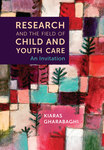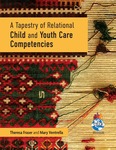We don’t actively support Internet Explorer
It appears that you are using Internet Explorer, which has been discontinued by Microsoft. Support has ended for versions older than 11, and as a result you may face security issues and other problems when using it.
We recommend upgrading to a newer browser such as Firefox, Google Chrome, or Edge for a much better experience across the web.
While this site may work with Explorer, we are not testing and verifying it, so you may run into some trouble or strange looking things.
A Hard Place to Call Home
A Canadian Perspective on Residential Care and Treatment for Children and Youth
By Kiaras Gharabaghi
Overview
In this seminal resource, Dr. Kiaras Gharabaghi identifies an underlying absence of unifying theory and practice in Canada's child and youth residential care and treatment services. By drawing on organizational examples from across Canada, Gharabaghi exposes how the historical dynamics of mediocrity and complacency have led to inadequate standards and practices within the system. More assuredly, this resource exposes readers to alternative ways of re-imagining a system that is designed from a space of care, healing, and growth that promotes autonomy for all young people.
This well-timed resource offers the child and youth services community a positive, constructive, and revolutionary framework for residential care and treatment that is fundamentally based on a partnership between caregivers and young people, their families, neighbourhoods, and communities. Dr. Gharabaghi’s sophisticated and provocative analysis of the system’s key issues is an essential resource for students, practitioners, and educators in the field of child and youth care and in the human services more broadly.
FEATURES
- allows instructor flexibility with chapters that can be taught in any preferred order
- connects to concepts that are covered across child and youth care program courses, strengthening student comprehension
Table of Contents
Preface “Dial Tone” by Cory MacKinlay Introduction: The Problem of Translation Chapter 1: The Voices of Young People Chapter 2: Theoretical Foundations of Residential Care and Treatment in Canada Chapter 3: Practice-Based Evidence for Excellence Chapter 4: Institutional and Everyday Cultures Chapter 5: Aesthetic and Sensory Contexts Chapter 6: Beyond the Plan of Care Chapter 7: The Lived Experience of Staff Chapter 8: Networked Practices Chapter 9: Residential Care and Treatment in the Context of Systems Chapter 10: Re-Designing the Professional Landscapes for Residential Care and Treatment in Canada Conclusion: The Case for a Democratic System of Care References Index









